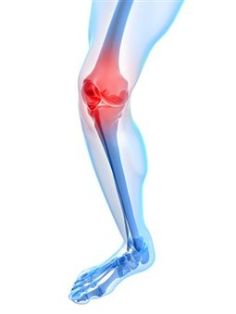 Are you active in sports? If you are, then it is important that you know how to take care of your body – especially your knees since they are often the most used part of the body when playing a sport.
Are you active in sports? If you are, then it is important that you know how to take care of your body – especially your knees since they are often the most used part of the body when playing a sport.
There are many injuries you can get from participating in any sport. ACL strains and tears is a common injury especially among football, basketball, and soccer players. This is usually due to sudden stops, a rapid change of direction, incorrect landing after a jump, and direct impact – all of which put pressure on the knees. Other causes are differences in lower leg alignment, ligament laxity, and pelvic alignment.
Sometimes, if the injury is severe, the patient may need to undergo an orthopedic surgery to regain complete knee functions after the injury. There are, however, many other treatments you can undergo. Surgery is not your only option. All you need to do is to consult with a sports medicine doctor who can check your condition and give you advice for treatment.

